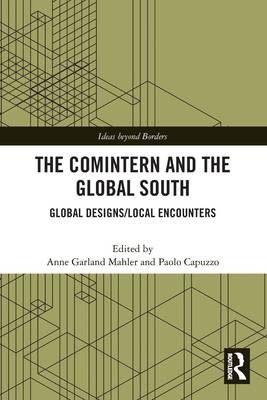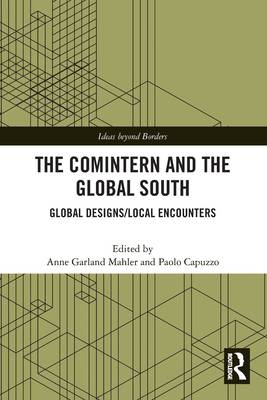
- Afhalen na 1 uur in een winkel met voorraad
- Gratis thuislevering in België vanaf € 30
- Ruim aanbod met 7 miljoen producten
- Afhalen na 1 uur in een winkel met voorraad
- Gratis thuislevering in België vanaf € 30
- Ruim aanbod met 7 miljoen producten
The Comintern and the Global South
Global Designs/Local Encounters
Omschrijving
The Comintern and the Global South: Global Designs/Local Encounters studies the relations and productive tensions between the Third International, intellectual histories of racial justice and anti-imperialism, as well as other forms of internationalism. Building on extant institutional histories of the Third International, it moves in new directions by focusing on the points of intersection - often conflictual and short-lived - with anti-imperialist, anti-racist, and nationalist organizing, making the Third International a site of encounter between a global political project and more local and regional contexts. Due to the broad range of geographic and linguistic expertise of the contributors, this book traces routes of exchange that are often elided in existing studies of the Third International. The chapters address how actors from Global South contexts shaped key debates on, for example, the role of Black, Indigenous, and migrant labor, the "Islamic question," and the "peasant question," which challenged Bolshevik epistemological frameworks. All such "questions" involved political subjectivities that the Comintern tried to reductively frame within a global revolution driven by Moscow, resulting in the Comintern's ultimate disintegration. Nevertheless, this juncture between the Comintern's global designs and its local encounters left a significant legacy that would later be reconfigured in mid-century anticolonial movements.
Specificaties
Betrokkenen
- Uitgeverij:
Inhoud
- Aantal bladzijden:
- 250
- Taal:
- Engels
- Reeks:
Eigenschappen
- Productcode (EAN):
- 9780367724856
- Verschijningsdatum:
- 30/12/2022
- Uitvoering:
- Paperback
- Formaat:
- Trade paperback (VS)
- Afmetingen:
- 156 mm x 234 mm
- Gewicht:
- 367 g

Alleen bij Standaard Boekhandel
Beoordelingen
We publiceren alleen reviews die voldoen aan de voorwaarden voor reviews. Bekijk onze voorwaarden voor reviews.










